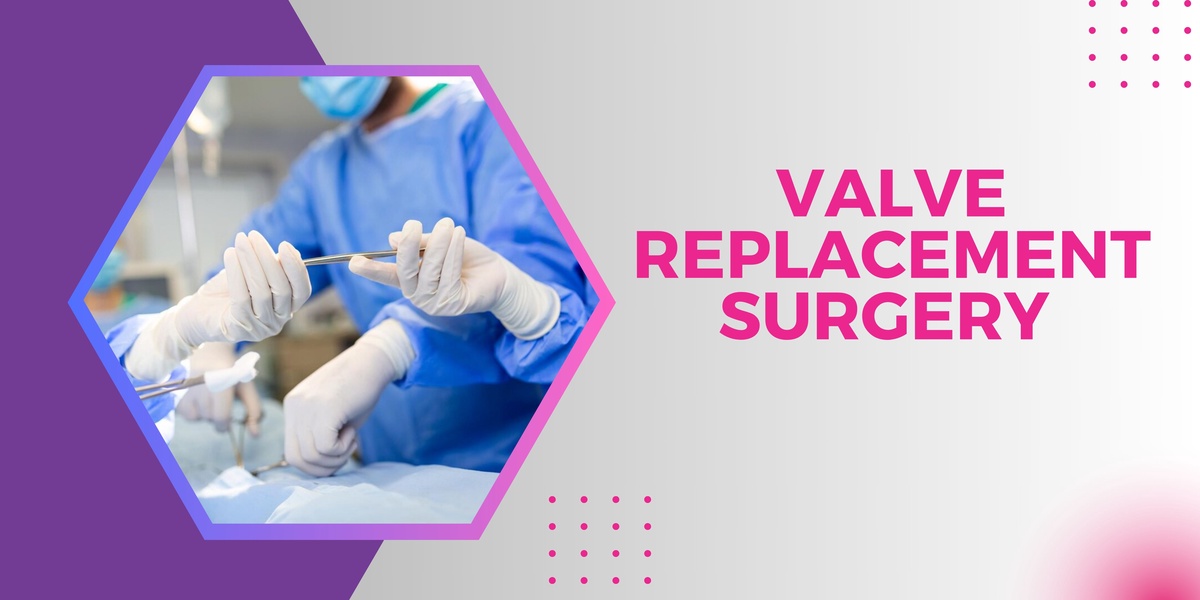The goal of valve surgery, commonly referred to as heart valve surgery, is to replace or repair malfunctioning or damaged heart valves. Heart valves are essential for maintaining healthy blood flow throughout the body, including the heart. Numerous symptoms and health issues can develop when these valves are impaired for a variety of reasons. We will look at the valve replacement surgery symptoms, causes, and available treatments in this post.
Symptoms of Valve Problems
Valve problems can affect any of the four valves in the heart, namely the mitral valve, tricuspid valve, aortic valve, and pulmonary valve. The symptoms of valve issues may vary depending on which valve is affected, but common signs and symptoms include:
- Shortness of breath, especially during physical activity.
- Fatigue or weakness.
- Chest pain or discomfort, often resembling angina.
- Irregular heartbeat or palpitations.
- Swelling in the ankles, feet, or abdomen.
- Dizziness or fainting.
- Rapid weight gain.
- Fluid retention leading to bloating.
Causes of Valve Problems
Valve problems can result from various underlying causes, and they can develop gradually or suddenly. Some of the most common causes include:
-
Congenital Valve Defects: Some individuals are born with abnormal heart valves, which can lead to valve dysfunction later in life.
-
Age-related Changes: As people age, their heart valves may naturally degenerate and become less efficient.
-
Rheumatic Fever: This inflammatory condition can damage heart valves, especially in regions with limited access to healthcare.
-
Infective Endocarditis: Bacterial or fungal infections can affect heart valves, causing them to become infected and damaged.
-
Degenerative Conditions: Conditions like calcification, which involves the build-up of calcium deposits on the valves, can cause them to become stiff and less functional.
-
Heart Attack: A heart attack can damage the heart muscle and affect the functioning of the heart valves.
Treatment Options: Valve Surgery
When valve problems become severe and significantly affect a person's quality of life or pose a risk to their overall health, valve surgery may be recommended. The primary objectives of valve surgery are to repair or replace damaged heart valves to restore normal blood flow and improve heart function.
-
Valve Repair: In some cases, the damaged valve can be repaired rather than replaced. Valve repair preserves the individual's own valve tissue and is often preferred when feasible.
-
Valve Replacement: When valve repair is not possible or less effective, a valve replacement may be necessary. This involves removing the damaged valve and replacing it with a mechanical or biological valve. Mechanical valves are durable but require lifelong anticoagulation therapy to prevent blood clots. Biological valves are made from animal or human tissue and do not require long-term anticoagulation.
-
Minimally Invasive Surgery: Advances in medical technology have led to minimally invasive approaches for valve surgery. These procedures involve smaller incisions and often result in shorter recovery times and less pain.
-
Transcatheter Valve Replacement (TAVR/TAVI): In certain cases, aortic valve replacement can be done using a transcatheter approach, where a replacement valve is inserted via a catheter through a blood vessel, avoiding the need for open-heart surgery.
Conclusion
Valve surgery is a life-saving and life-improving procedure for individuals with damaged or dysfunctional heart valves. Recognizing the symptoms of valve problems and understanding their underlying causes is crucial for timely diagnosis and intervention. With advancements in surgical techniques and technology, valve surgery has become more effective, less invasive, and safer, offering better outcomes and improved quality of life for patients facing these challenging heart conditions. If you or someone you know is experiencing symptoms of valve problems, consult the best hospital for heart valve surgery in Coimbatore for a thorough evaluation and appropriate treatment recommendations.


No comments yet